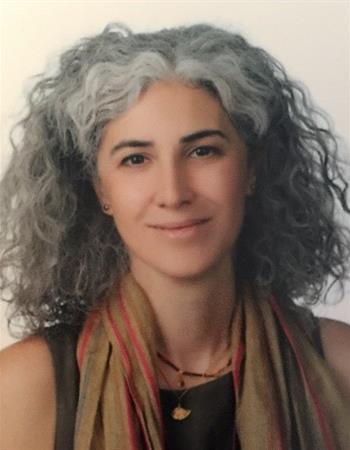AHU ANTMEN

Ahu Antmen is professor of modern and contemporary art at Sabancı University Faculty of Arts and Social Sciences. Her research is based on issues of modernity and its reflections, with a focus on the ways in which gender dynamics shape processes of artistic practice in Turkey. Her publications include 20. Yüzyıl Batı Sanatında Akımlar (Trends in 20th Century Western Art), Kimlikli Bedenler-Sanat, Kimlik, Cinsiyet (Bodies with Identities-Art, Identity, Gender), Memory of Time: The Art and Life of Ali Teoman Germaner, Stranger Within: Hale Tenger and the edited volume Sanat/Cinsiyet-Sanat Tarihi ve Feminist Eleştiri (Art/Gender: Art History and Feminist Critique). She has contributed to various publications, including Mapping Impressionist Painting in a Global Context (Routledge, 2021), Globalizing Impressionism: Reception, Translation, and Transnationalism (Yale University Press, 2020), Curatorial Challenges-Interdisciplinary Perspectives on Contemporary Curating (Routledge, 2019), Artists in their Time (Istanbul Modern, 2015), Unleashed-Contemporary Art from Turkey (Thames&Hudson, 2010), Beyond Imagined Uniqueness-Nationalisms in Contemporary Perspective (Cambridge Scholars Publishing, 2010). Her curatorial work includes Nur Koçak-Our Blissful Souveniers at Salt (2019), Bare, Naked, Nude-A Story of Modernity in Turkish Painting at the Pera Museum (2015), Second Eye-Women Photographers from Turkey at Sismanoglio Megaro (2013) and Turkish Painting from the Tanzimat Era to the Republic (2012), Joseph Beuys and His Students at the Sabancı Museum (2009).
The Art History Myth and “Woman Artists"
It has been fifty years since the publication of Linda Nochlin'in groundbreaking essay “Why Have There Been No Great Woman Artists?" (1971). And 50 years later, the idea that art history is a gender-based narrative, an ideological myth is more widely accepted. In this light, what kind of observations can we make about the current course of a struggle that was initiated by feminist art historians and artists in the 1970s? How has awareness affected the transformation of institutional structures that are the very stage of art history? Have we overcome the concept of “woman artist" as a separate category while constructing new art historical narratives today? What kind of transformations can be observed from past to present relating to concepts of art and artistic identity in the context of gender?
LALEPER AYTEK
 Laleper Aytek is an artist and a photographer, college instructor, curator and critic living and working in Istanbul.
Laleper Aytek is an artist and a photographer, college instructor, curator and critic living and working in Istanbul.
After graduating from Boğaziçi University with a BA degree in economics, she went to Norway to pursue graduate studies in social economics where her interest shifted more and more to photography. Her growing interest in photography that has stated in her college years resulted in her opening a photography studio in Istanbul in the early '90s. While practicing her art as a free-lance advertising photographer, she also made valuable contributions to photography in Turkey by taking part, as the director of photography, in the establishment of the first large scale digital photography studios in Turkey. Since 2009, Aytek is working as a full-time instructor and teaching courses on photography in the Department of Media & Visual Arts (MAVA), Koç University (Istanbul).
Aytek's contribution to the literature is mainly through her journal articles where she focuses especially on the “ways of seeing" and the “history of photography" from a subjectivity point of view. This peculiar approach is mainly elaborated in her MA thesis entitled “Rethinking the History of Photography Canon: A Study on Subjectivity". Her published work includes a collection of her articles on photographic thinking; A Photography of Her Own (2005), Palimpsest Istanbul (2010) and Void (2013), Non Paris (2014), Partie au loin, au fond d'elle meme? (2017) and Life is Elsewhere (2019). As a photographer, Aytek also participated in numerous solo, and group shows since 1991.